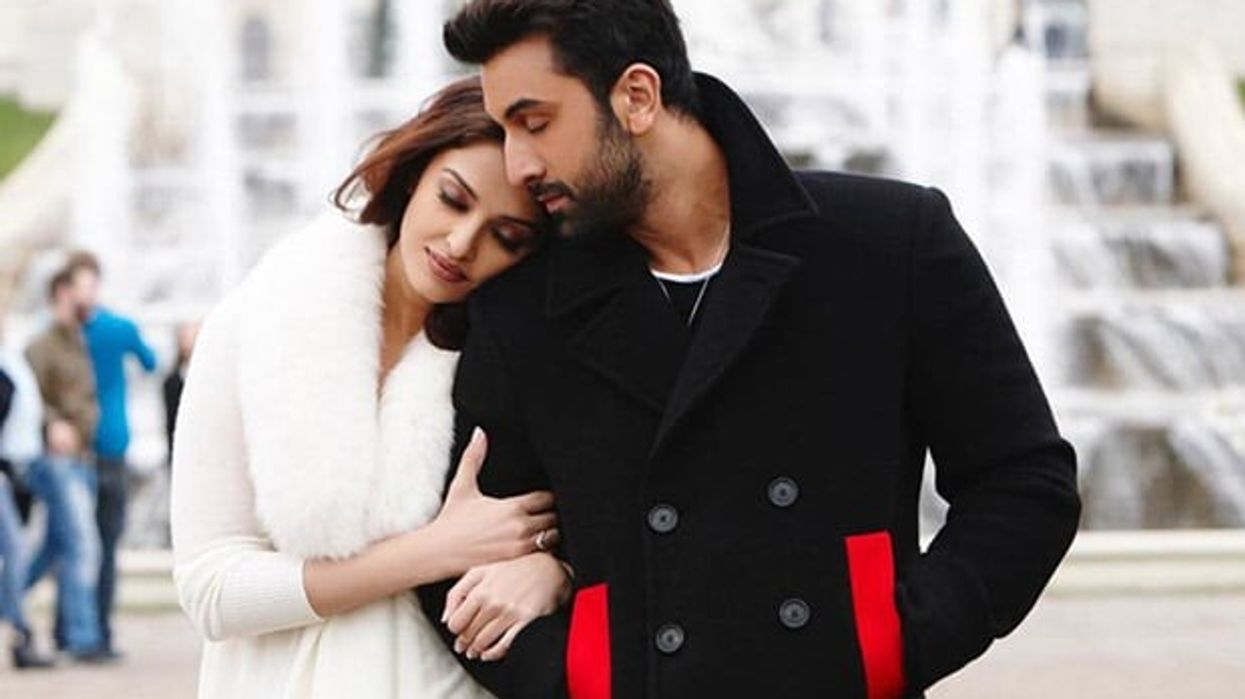The recently released Hollywood film The Idea of You has been garnering positive response from critics and audiences alike, with the majority of the audience praising actress Anne Hathaway’s character who embarks on a romantic relationship with a sixteen-year-old man, played by Nicholas Galitzine. While there is no dearth of such Hollywood films where older women find love in younger men, Bollywood has long been known for its conventional portrayal of romance, often sticking to the age-old formula of older men falling in love with much younger heroines. However, once in a blue moon, we encounter a refreshing shift in narratives, with filmmakers daring to break stereotypes by exploring relationships where older women take the lead in romancing younger men. Here are five Bollywood films that have delved into this unconventional yet heartwarming territory:
Lipstick Under My Burkha (2016)
Directed by Alankrita Shrivastava, Lipstick Under My Burkha is a bold and unapologetic portrayal of the desires and aspirations of four women from different age groups. One of the storylines follows Usha Buaji, essayed by the supremely talented Ratna Pathak Shah, a widow in her fifties who finds herself entangled in a passionate affair with a much younger swimming instructor. The film fearlessly confronts societal taboos surrounding age and sexuality, advocating for the freedom to love and live on one's own terms.
Ki & Ka (2016)
Balki's Ki & Ka challenges gender stereotypes while also subtly addressing age dynamics in relationships. The film follows the unconventional love story of Kia, played by Kareena Kapoor Khan, an ambitious career woman, and Kabir, portrayed by Arjun Kapoor, a laid-back house husband. While the age gap between the characters isn't explicitly highlighted, Kia's assertive and independent personality contrasts with Kabir's easy-going nature, challenging traditional gender roles and societal expectations.
Ae Dil Hai Mushkil (2016)
Directed by Karan Johar, Ae Dil Hai Mushkil explores complex emotions and relationships, including one between a mature poet, Saba, portrayed by Aishwarya Rai Bachchan, and a much younger aspiring musician, Ayan, played by Ranbir Kapoor. Saba's character exudes confidence and sensuality, captivating Ayan despite their age difference. Their unconventional love story traverses themes of unrequited love, friendship, and the acceptance of life's unpredictable twists and turns.
Wake Up Sid (2009)
Helmed by debutant filmmaker Ayan Mukerji, this coming-of-age film starring Ranbir Kapoor and Konkona Sen Sharma not only captivated audiences with its portrayal of youthful rebellion and self-discovery but also subtly delved into the theme of an unconventional romance between an older woman and a younger man. The film smashed several stereotypes by showing how a young, confused, just-out-of-college boy who is grappling with his own insecurities and struggles to find his place in the world falls in love with an independent, older writer.
Dil Chahta Hai (2001)
Dil Chahta Hai, directed by Farhan Akhtar, remains a seminal film in Indian cinema, celebrated for its portrayal of friendship, love, and self-discovery. Among its many memorable aspects is the subplot involving Akshaye Khanna's character, Siddharth, falling in love with a much older divorcee, Tara Jaiswal, portrayed by Dimple Kapadia.




